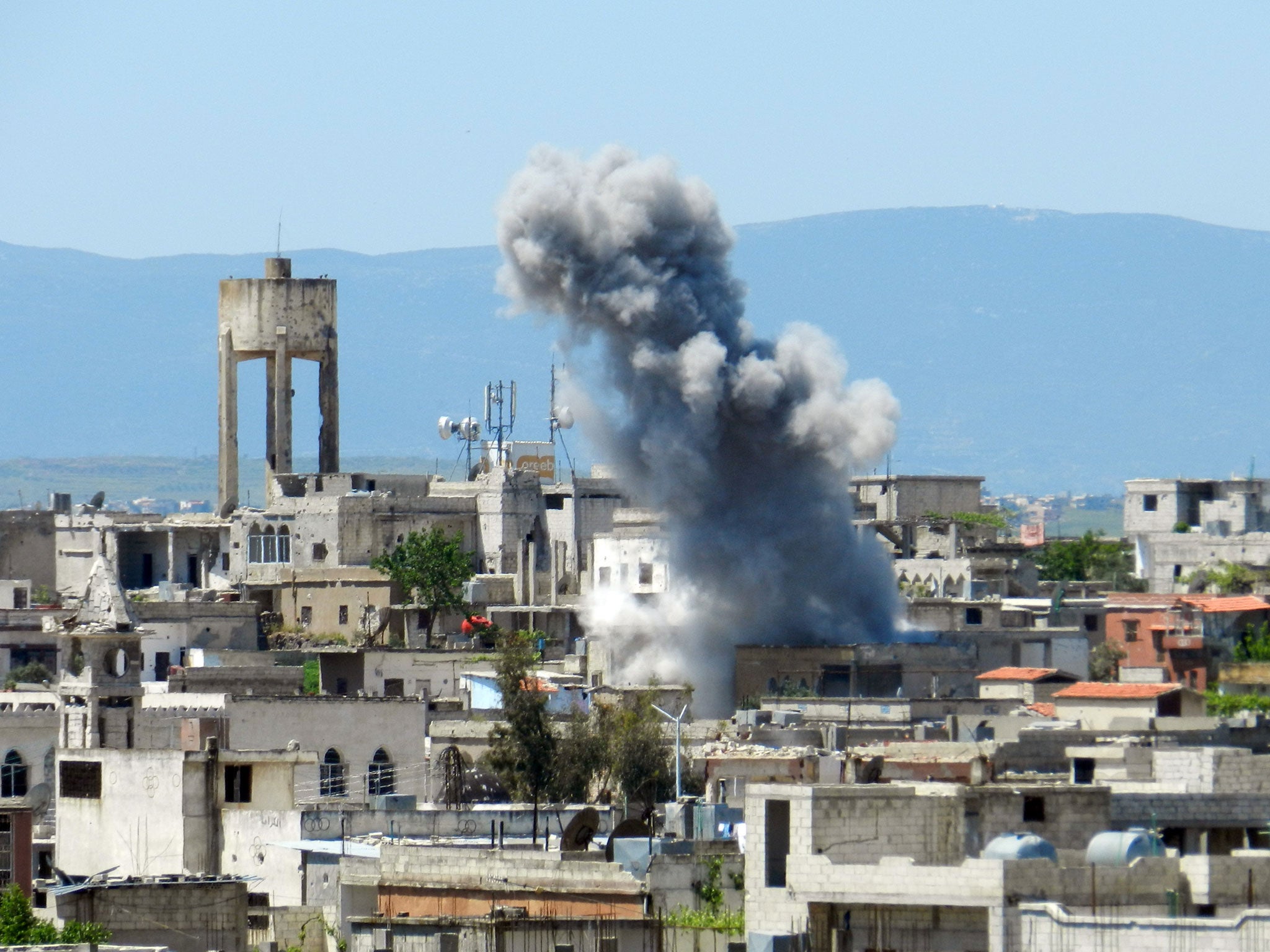Robert Fisk: This was supposed to be a 'game changer' week in Syria, so why is it all the same?
In the 13th century Sultan Qalawun was known as the 'suppressor of rebels'. The army of his 21st century counterpart may be winning, but the rebels are not 'suppressed'


The Iraqi poet al-Mutanabbi – he who said that “if you see the teeth of a lion, it doesn’t mean that the lion is smiling at you” – was murdered by someone he had offended in a poem. So writers living in Middle Eastern dictatorships have generally adopted the cautious politics of the Tudor poets, of Shakespeare’s tragedies or John Donne. Tell your story in metaphor.
Always when I come to Syria, I bring Warwick Ball’s gentle archeological manual, published almost 20 years ago. And so in Damascus, contemplating the nature of autocracy, I naturally turned to it and the inscription on the wall of the Aleppo citadel which commemorates the 13th-century Sultan Qalawun. The reader deserves to read this: “Lord, the greatest ruler, the most noble king, the learned, the just, the victorious, the warrior, the guardian of the frontiers, the helper, the triumphant … suppressor of rebels … the Alexander of his time.” Syrian Baath Party propaganda couldn’t beat that!
But as I was writing these words in Damascus, I did wonder how the occupant of the city’s presidential palace felt more than two years into a bloodbath as violent as that through which Qalawun lived. The sultan had to face family feuds – just as the father of Bashar al-Assad did – but the latter has a long way to go to earn those other titles. Bashar’s own enemies may regard him as an apostate (a sectarian label, for Alawites are no heretics) but the “suppressor of rebels” is a sobriquet that Assad has not yet earned. His army may be winning for the moment, but the rebels are not “suppressed”. As for “guardian of the frontiers”, Syria has lost all but one border post with Turkey.
So where do we stand in Syria today? Well, what happened in Libya – Nato support for rebels who killed Gaddafi and then turned their country into a series of Islamist fiefdoms where even the US ambassador could be murdered – probably saved Syria. Take a listen to the senior US Democrat Nancy Pelosi on Friday. “This is not Libya. The Syrians have anti-aircraft capability that makes going in there much more challenging.” Indeed.
For journalists have forgotten – but I bet Pelosi hasn’t – that US aircraft did attack the Syrian military in Lebanon in the 1980s. One bomber was shot down in the Bekaa Valley, one of its crew killed and the other held for weeks in a Damascus prison until Jesse Jackson decided to “break the cycle of violence” and plead successfully with Assed père for his release. So no, Nato is not going to bomb the tanks of the Syrian regime.
In much the same way, Iraq has probably saved Iran from US attack. True, the Qataris and the Saudis are arming the rebels of Syria but – with just enough to stop them losing but not enough to allow them to win. Does the same apply, one wonders, to the Russians as they resupply the Syrian army’s tank corps?
If the Sultan Qalawun had to defeat Crusaders from the superpowers of Europe and from regional enemies like Iran, Bashar al-Assad has Washington and the EU, plenty of local Gulf kings and a host of rebels of various Islamist credentials to contend with.
This time, he has Iran on his side.
Yet history is a strange companion. Look at the last two years. Remember the mass defections, the Free Syria Army and the tens of thousands who were expected to flock to its colours? Thousands did. Tens of thousands did not.
Remember General Manaf Tlass who defected last July? When did we last hear of him? A Prime Minister defected – and was replaced. A Defence Minister was assassinated – and replaced. Assad’s forces were collapsing at Aleppo, or so we were told. A government general in the city did tell me last August that he would recapture neighbouring streets in 10 days. He still has not. And if Aleppo can hold on, why shouldn’t Damascus?
Then there are Syria’s chemical weapons. Last week’s hair-raising “red line” headlines transmogrified Obama into King Lear (“I will do such things – what they are yet, I know not…”) with his usual double-speak: “this is going to be a game-changer”, but it’s only a “preliminary assessment”. So forget red lines.
And so no change. Two more years of war? Three? History is a cruel master. For last autumn that wonderful inscription was blasted off the Aleppo citadel wall by rebel explosives. So much for the guardian of frontiers and the suppressor of rebels.
